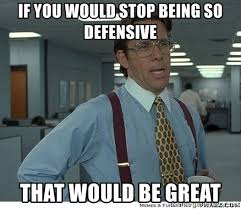
Nothing is more deceitful than the appearance of humility. It is often only the carelessness of opinion, and sometimes an indirect boast. – Jane Austen
Once when I was just a young boy, our family was all together visiting my grandparents. One of my favorite places to gather with the rest of my cousins was a big pond around the corner from their house.
The lake was far enough away to get out from under foot of the grown-ups but close enough to get back to quickly for a snack.
On this particular visit, I was about five or six. One morning, I made my way to the pond before my siblings and cousins and met a man fishing on the bank. Seeing that I had no fishing gear with me, he gave me a cane pole to use. The only catch was, there was no hook on it, just a clothespin.
About the time that some of the others joined me, the man caught a fish. Seizing an opportunity to play a joke, the man took the fish off of his hook and placed it on the clothespin attached to the line on my cane pole.
With all the glee that I could muster, I showed everyone the fish that I had just caught. My cousins were beside themselves in astonishment that I was able to catch a fish with only a clothespin for a hook.
All these years later, that fish tale continues to be laughed about with my cousins. Perhaps you have a fish tale that has taken on a life of its own or a story that has seen numerous revisions and embellishments.
Be it fish tales or tall tales, we have stories that we love to share, and the more embellishments the better.
But in the real world and in your leadership, a more humble approach needs to be embraced.
Patrick Lencioni observed, “People who have a sense of peace that their priorities are in the right place also have a sense of humility and a realistic view of life.” And this is exactly the outcome and by-product of humility-driven leadership.
When your priorities and values are rightly aligned, you can lead with a greater sense of humility and purpose. Click To Tweet
This is not a false humility that secretly craves attention, but a humility that willingly concedes the spotlight by putting someone else in it.
On a day-to-day basis, what does humility in leadership look like? Here are a few ways to tell:
- The humble leader listens more, talks less
- The humble leader takes less of the credit and more of the blame
- The humble leader seeks collaboration and input
- The humble leader lifts others and celebrates their success
- The humble leader takes on the mindset of a student; never stops learning
- The humble leader is forgiving and patient with the growth challenges and mistakes of others
- The humble leader is willing to put a fish on your clothespin in order to make you look good
Final Thoughts
Over my decades in leadership, I’ve seen leaders of every stripe. But the ones who last are the ones who do not think more highly of themselves than they should. I think it’s time to reclaim humility in leadership.
©2023 Doug Dickerson




 In teachable moments that you have – especially with mentors and those with more knowledge and experience, one sure sign of not being teachable is that you become defensive. And what happens plays out like this: you defend yourself rather than listen; you justify your actions and behaviors rather than correct them, and you put up walls. So long as you are defensive and not teachable, you forfeit the opportunity for a teachable moment and to be a better leader.
In teachable moments that you have – especially with mentors and those with more knowledge and experience, one sure sign of not being teachable is that you become defensive. And what happens plays out like this: you defend yourself rather than listen; you justify your actions and behaviors rather than correct them, and you put up walls. So long as you are defensive and not teachable, you forfeit the opportunity for a teachable moment and to be a better leader.






